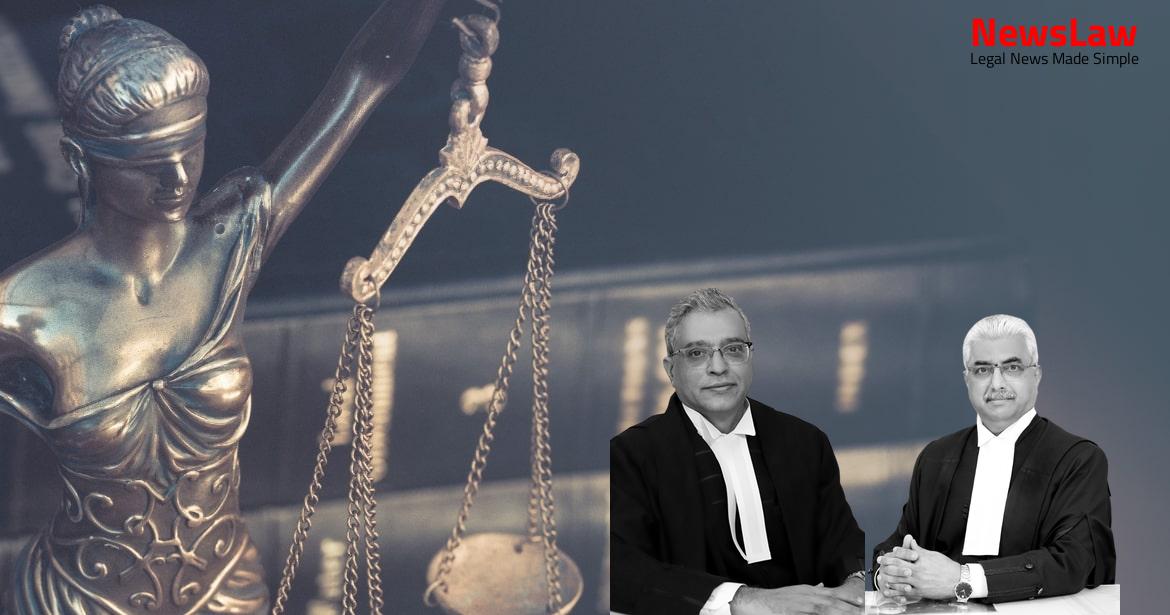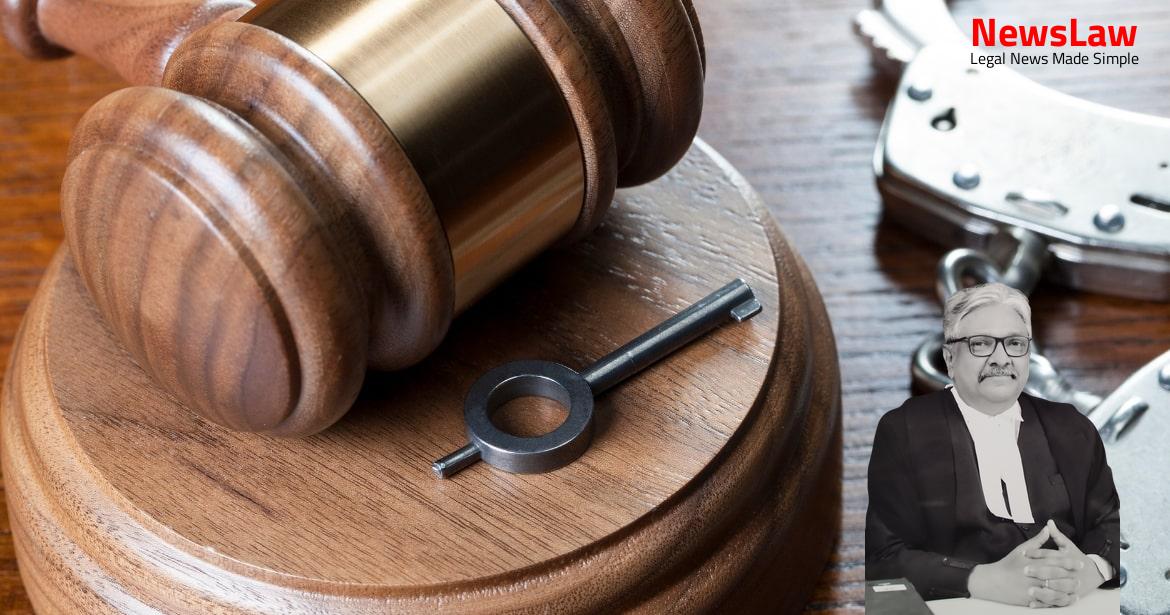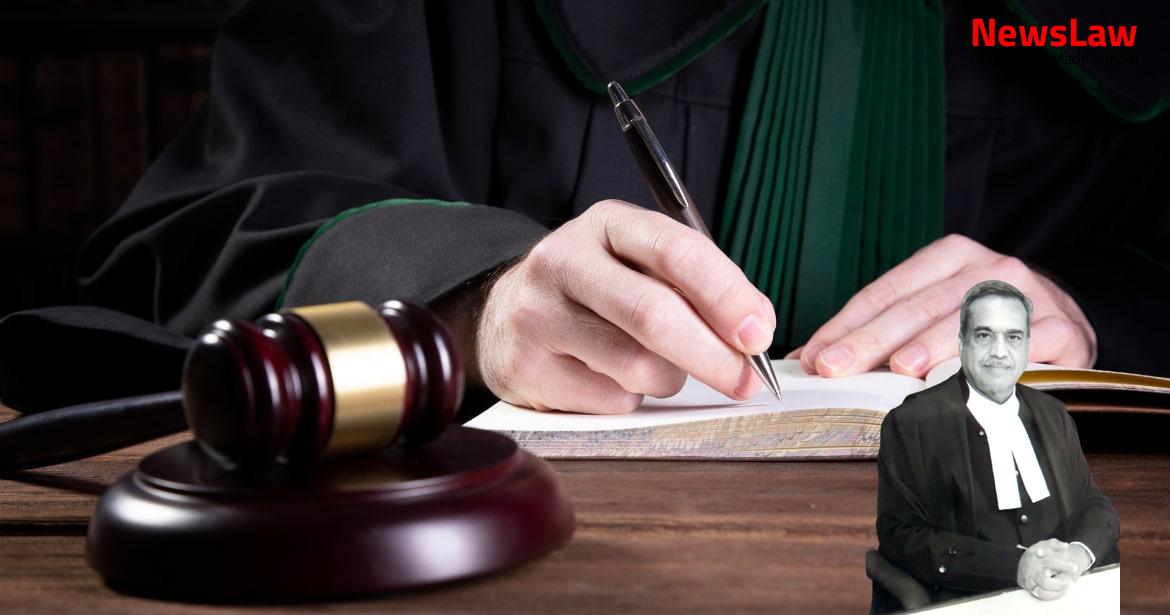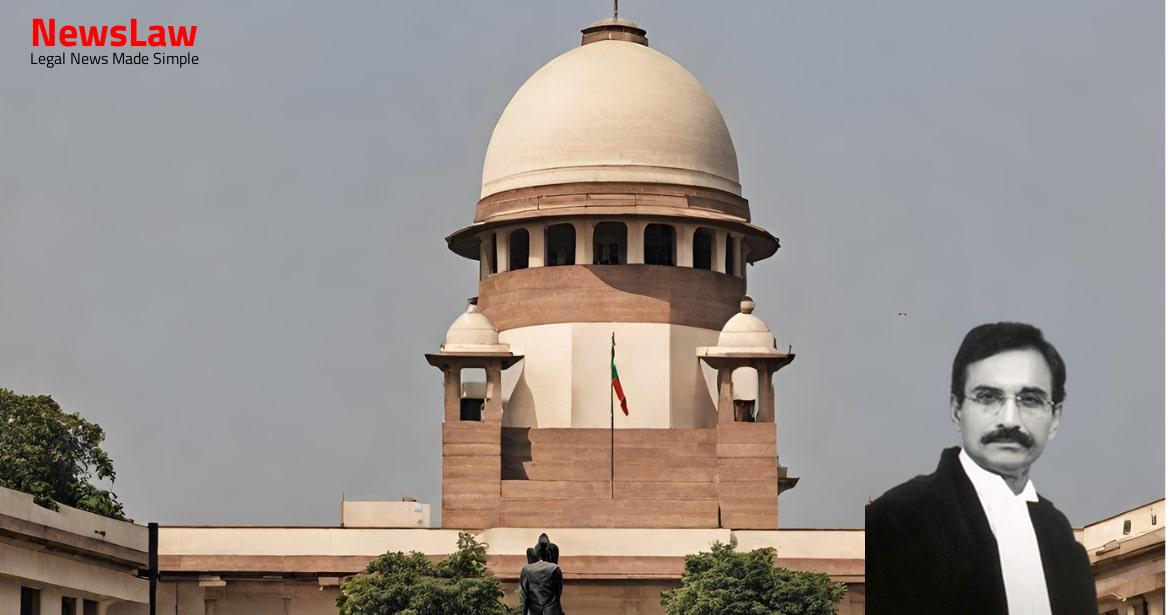2024 INSC 94 1 REPORTABLE IN THE SUPREME COURT OF INDIA CIVIL APPELLATE JURISDICTION CIVIL APPEAL No.4672 OF 2012 NARESH CHANDRA AGRAWAL…APPELLANT(S) VERSUS THE INSTITUTE OF CHARTERED ACCOUNT OF INDIA AND OTHERS…RESPONDENT(S) J U D G E M E N T Aravind Kumar, J. In having failed to point out the suspicious transactions that took place on 27.09.2009, the Complainant alleges that the firm had utterly failed to discharge its professional obligation under the terms, as agreed.
On 15.02.2010, there was a letter communication received by the Director (Discipline) from the audit firm, in which it was stated that the Appellant was given the responsibility for reviewing the subject transactions. On such opinion of the Director being placed before the Board of Discipline, Respondent No.1 informed the Appellant that the Board of Discipline had disagreed with the prima facie opinion of the Director (Discipline) and the Board had decided to refer the matter to the Disciplinary Committee for further action under Chapter V of the Chartered Accountants’ (Procedure of Investigation of Professional and Other Misconduct and Conduct of Cases) Rules, 2007 (for short ‘Rules, 2007’). Counsel for the Appellant, when the Director (Discipline) was of the prima facie opinion that the Appellant was not guilty of the alleged misconduct, the Board had two options available to it according to Section 21 A (4) of the Act. According to him, if the argument of the Appellant is accepted, the result would be that the Director (Discipline), who is merely a Secretary to the Board of Discipline, would have greater powers than the Board itself.
7 (3) Where the Director (Discipline) is of the opinion that a member is guilty of any professional or other misconduct mentioned in the First Schedule, he shall place the matter before the Board of Discipline and where the Director (Discipline) is of the opinion that a member is guilty of any professional or other misconduct mentioned in the Second Schedule or in both the Schedules, he shall place the matter before the Disciplinary Committee. (5) Where a complainant withdraws the complaint, the Director (Discipline) shall place such withdrawal before the Board of Discipline or, as the case may be, the Disciplinary Committee, and the said Board or Committee may, if it is of the view that the circumstances so warrant, permit the withdrawal at any stage. (4) The Director (Discipline) shall submit before the Board of Discipline all information and complaints where he is of the opinion that there is no prima facie case and the Board of Discipline may, if it agrees with the opinion of the Director (Discipline), close the matter or in case of disagreement, may advise the Director (Discipline) to further investigate the matter.] 21B. (3) Where the Disciplinary Committee is of the opinion that a member is guilty of a professional or other misconduct mentioned in the Second Schedule or both the First Schedule and the Second Schedule, it shall afford to the member an opportunity of being heard before making any order against him and may thereafter take any one or more of the following actions, namely: — (a) reprimand the member.
9 (2) In particular, and without prejudice to the generality of the foregoing powers, such rules may provide for all or any of the following matters, namely : (a) the manner of election and nomination in respect of members to the Council under sub-section (2) of Section 9; (b) the terms and conditions of service of the Presiding Officer and Members of the Tribunal, place of meetings and allowances to be paid to them under sub-section (3) of Section 10B4; (c) the procedure of investigation under sub-section (4) of Section 21 ; (d) the procedure while considering the cases by the Disciplinary Committee under sub-section (2), and the fixation of allowances of the nominated members under sub- section (4) of Section 21B; (e) the allowances and terms and conditions of service of the Chairperson and members of the Authority and the manner of meeting expenditure by the Council under Section 22C; (f) the procedure to be followed by the Board in its meetings under Section 28C ; and (g) the terms and conditions of service of the Chairperson and members of the Board under sub-section (1) of Section 28D.] (emphasis supplied) (2) (a) Where the Director is of the prima facie opinion that, (i) the member or the firm is guilty of any misconduct under the First Schedule, he shall place his opinion along with the complaint and all other relevant papers before the Board of Discipline. (b) if it disagrees with such opinion of the Director, then it may either proceed under chapter IV of these rules, if the matter pertains to the First Schedule, or refer the matter to the Committee to proceed under Chapter V of these rules, if the matter pertains to the Second Schedule or both the Schedules and may advise the Director to further investigate the matter. Section 21(3) states that should the Director (Discipline) arrive at a prima facie opinion that the member is guilty of professional misconduct, he shall refer the matter to the Board of Discipline or the Disciplinary Committee, depending on whether the alleged misconduct falls within the First Schedule or the Second Schedule or both. In the event where the Complainant wishes to withdraw his/her complaint, Section 21(5) provides that the Director (Discipline) shall place the request for withdrawal before the Board of Discipline or the Disciplinary Committee, as the case may be, and the Board or Committee would take a final call in this regard. Section 29A (1) enables the Central Government ‘ to make rules to carry out the provisions of this Act’. It is relevant to note that the power to make rules under sub-section (2) of Section 29A is ‘ without prejudice to the generality of the foregoing power’ provided for in Section 29A(1).
Sub-clause (2) sets out the procedure to be followed in the event where the Director (Discipline) reaches a prima facie opinion that the member is guilty of professional misconduct. Similarly, the Board could refer the matter to the Disciplinary Committee for action under Chapter V if the matter 14 pertains to the Second Schedule or it could advise the Director (Discipline) to conduct further investigation. (2006) 4 SCC 517, this Court recollected the following principles while adjudging the validity of subordinate legislation, including regulations: 15.
It is also well recognized that a subordinate legislation can be challenged under any of the following grounds: (a) Lack of legislative competence to make the subordinate legislation. Therefore, it becomes important to examine the scope of power available under the Act before we can adjudge whether the Rules exceed the limits of authority conferred by the enabling Act. The illustrative list of subjects cannot limit the scope of general power available under the wider rule-making power found in Section 29A(1). This mode of interpretation has been categorised as the ‘generality versus enumeration’ principle in some precedents of this Court.
This Court held as follows : “………where power is conferred to make subordinate legislation in general terms, the subsequent particularisation of the matters/topics has to be construed as merely illustrative and not limiting the scope of the general power.
Also Read: https://newslaw.in/supreme-court/conviction-and-sentencing-analysis-in-a-criminal-appeal-case/
Section 19 (1),(2),2(f) read as follows: (1) The State Government may make rules to carry out the purposes of this Act. The pro- visions of Sub-section (2) are not restrictive of Sub-section (1) as expressly stated in the words ‘without prejudice to the generality of the foregoing power’ with which Sub-section (2) begins and which words are similar to the words of Sub- section (2) of Section 2 of the Defence of India Act which the Privy Council was considering…..” (emphasis supplied) 30.
In this context, this Court, in Hindustan Zinc Ltd., held that the power of fixation of tariff in the Board ordinarily had to be done in the light of specified factors; however, such enumerated factors in Section 49(2) did not prevent the Board from fixing uniform tariff on factors other than those enumerated in Section 49(2), as long as they were relevant and in consonance with the Act.
Rejecting the said contentions, this Court observed as follows: “Even if the said clauses did not justify the impugned bye- law, there can be little doubt that the said bye-laws would be justified by the general power conferred on the Boards by s. 298(1), provided, of course, the impugned bye-laws can be justified by reference to the requirements of s. The doctrine of ultra vires envisages that a Rule making body must function within the purview of the Rule making authority, conferred on it by the parent Act. (e) The “ generality vs enumeration ” principle lays down that, where a statute confers particular powers without prejudice to the generality of a general power already conferred, the particular powers are only illustrative of the general power, and do not in any way restrict the general power. When such a power is given, it may be permissible to find out the object of the enactment and then see if the rules framed satisfy the Act of having been so framed as to fall within the scope of such general power confirmed.
If we look at the parent Act, the rule-making power has been conferred under Section 29A, which is titled as ‘Power of the Central Government to make Rules’. Admittedly, Rule 9(3) goes beyond what is provided for under Section 21A(4) in terms of the options available to the Board of Discipline in case it disagrees with the opinion of the Director (Discipline).
Also Read: https://newslaw.in/supreme-court/legal-analysis-of-circumstantial-evidence-in-a-murder-case/
The chapter on “Misconduct” in the Chartered Accountants Act, 1949, plays a crucial role in maintaining the ethical standards of the profession in India. The Director (Discipline) who functions as a secretary to the Board of Discipline as per Section 21A (2) will be having greater powers than the Board itself. Therefore, even if we accept, for the sake of argument, that Rule 9(3) cannot be saved under Section 29A(2)(c), as it directly relates to furthering the purposes of the Act in ensuring that a genuine complaint of professional misconduct against the member is not wrongly thrown out at the very threshold, it can be easily concluded that the impugned Rule falls within the scope of the general delegation of power under Section 29A(1).
Case Title: NARESH CHANDRA AGRAWAL Vs. THE INSTITUTE OF CHARTERED ACCOUNTANTS OF INDIA (2024 INSC 94)
Case Number: C.A. No.-004672-004672 / 2012



